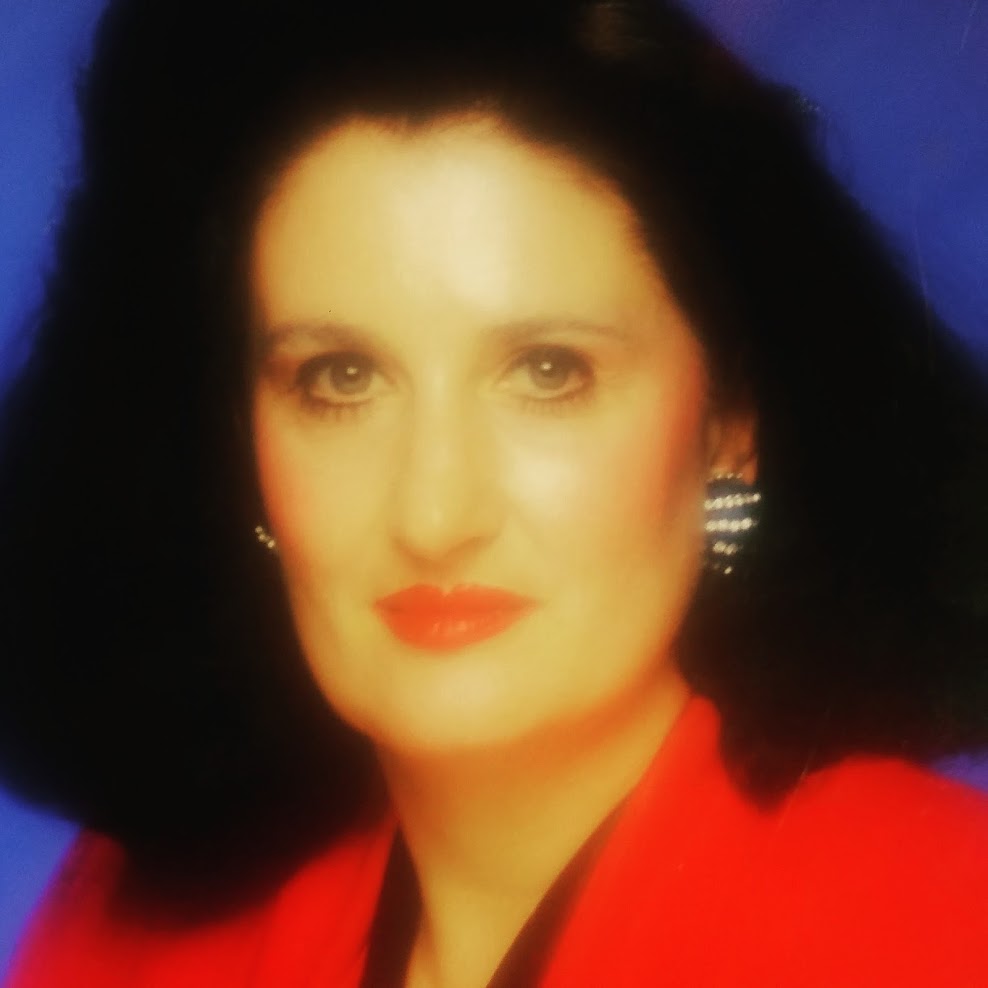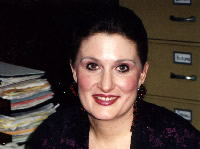Melody Jensen - Founder
909 229 5595
This email address is being protected from spambots. You need JavaScript enabled to view it.
Please Scroll down to enjoy Videos!
V
A Grateful Message From Founder, Melody Jensen;

This email address is being protected from spambots. You need JavaScript enabled to view it.
phone 909 229 5595
To Our Friends, Family and the World! I want to sincerely thank my friends, family and social network of entrepreneurs, business associates, and humanitarians. Thank you for the support and love that you have shown Jackie and I.I would like to share with you the meaning of my email address This email address is being protected from spambots. You need JavaScript enabled to view it. The translation is, that Jackie and I are here to take TLC (tender loving care) to this world to collect people, products, and projects. We are here to serve and pay it forward to make a difference in the world! The Happiness Red Carpet Events events began in 2003 to fight against sexual, physical and mental abuse in the world. Eating disorders, drug addictions depression, unhappiness and lack of self-esteem is the byproduct. Through thick and thin, Jackie and I stuck together and prayed a lot, for our Melody and Jackie World Wide Happiness movement. You are invited to join us to celebrate our lives together in paying it forward to make a difference, as we all have our own unique gifts and missions.

\
Scroll down to view Videos
"I love you."
I can't think of any number of words in the entire English language more powerful than these 3 simple words when set one after the other. They're calming, they're refreshing, they're restorative. They speak healing, they're heart-warming, and encouraging. They make all the difference.
At the same time, when is the last time you've said them to or heard them from the people who mean the most to you? For most, it's been too long.
In life, you can't go back. When it's too late, it's too late. We never know what tomorrow will bring, or even today. I've lost loved ones and I've seen others lose some of the closest people to them, unexpectedly, without warning. Did they have regrets about not telling them they cared enough? Failing to say those 3 simple words as often as they should? I don't ever, ever want to find myself in that position.
And really, how often is often enough? Once or twice a year in a greeting card? The reality is this -- you, your family, your closest friends...nothing is guaranteed. The closest person to you could be gone tomorrow. Did you tell them you loved them today? Did you express to them how much they mean to you?
I tell my wife and kids that I love them all throughout the day, every day. My closest friends and my family know they are loved. Not because they are left to assume it, but because I tell them. I made a decision a long time ago that I would make sure the people around me know how important they are to me. Life is too short for the things that matter most to go unsaid. For the people who are close to me, I don't want them to ever have to wonder if I love them. I never want someone to have to assume that I care about them. If I'd do anything for someone, they will 100% know it. How? I'll say it. I'll show it. I'll do it. In the big things, in the little things, in the deep conversations, and in the little "reminder" phrases. "Have I told you how much I love you today?"
Try asking that question without making someone's day. Without filling them with warmth. Without evoking a huge smile. Do they know you love them? Of course they do. But it's little reminders like that that make all the difference. Its lets the person know "You're important to me. Right now, in this moment." It's current. It's edifying. It's encouraging. It's what people need. Cherish the people around you today. Let them know they're important to you. Let them know you love them. Say it today. Say it like you mean it. Say it often. No one gets tired of being reminded that you love them, or hearing that you care. Yes, show it, but also say it. You never know when someone needs to hear those 3 simple words most. And before signing off, I'd be remiss if I failed to share the one greatest example of love, ever within history...our daily example, and reminder:
This is how much God loved the world: He gave his Son, his one and only Son. And this is why: so that no one need be destroyed; by believing in him, anyone can have a whole and everlasting life. God didn’t go to all the trouble of sending his Son merely to point an accusing finger, telling the world how bad it was. He came to help, to put the world right again. Anyone who trusts in him is acquitted. -John 3:16-17
In sincere friendship,
Joel
This month take more time to touch and appreciate more! Your children will mirror you later in life in their adult relationships. Children who don’t receive love through touching and appreciating will fear intimacy later in life. If you want your child to be a loving parent in their adult life, they learn this from you and your example. Remember what goes around in the circle of life comes around. Showing appreciation through those warm hugs and kisses will give the security and confidence to your children that they need to explore positive, proactive relationships in the future. (In box) Every time your child leaves you or returns home, make it a family policy no matter how late in the evening it is, or how old they are, you both exchange a big hug for showing your appreciation and love!
by S.H. Jacob, Ph.D. Author of Your Baby’s Mind
(Bob Adams Publishers, 1992)

A series dedicated to society’s most precious possession – newborns.
In this series, I will explore the fascinating world of newborns – what they already know, how they adapt and learn, and what we – as parents, grandparents, and significant others – can do to give them the start they deserve. Only forty years ago, experts thought of newborns as helpless, incompetent creatures that came to this world unprepared, passive, and unintelligent. The impression was that newborns were blank slates passively awaiting experience to etch its marks on them; to be molded and shaped as if they were nothing more than raw material. They saw them as empty receptacles waiting to be filled with skill and knowledge, which had to literally be force fed into them. And it was thought that the best way to do that was through language, repetition, and drill. Jean Piaget, a pioneer in child development, changed all that. He insisted that babies (and all learners for that matter) are active beings who come to this world with a myriad of abilities that are designed to expand their grasp of the world of things, people, and language. He showed how his own three children – as babies—formed concepts as they interacted with objects and solved practical problems, which he had deliberately posed to them. All along, Piaget tested his own ideas about how infants and very young children from knowledge by meticulously observing, recording, testing and re-recording his observations. Research on infants around the world has confirmed Piaget’s observations as being universal. For some time now, we’ve known that infants, the world over, develop in the same order; that is, they pass through stages, one stage at a time, no matter what culture we examine. Yet, the rate of intellectual development varies depending on the type of experience babies have during those critical early years. The 1960’s and 1970’s saw a sudden surge of research into what and how babies know. Since then, psychologists have improved their techniques for studying newborns and how parents interact with them. The result is a picture that says three things: (a) newborns are much more intelligent than we ever thought they’d be, (b) they can learn things quickly and easily if only we knew what to do and when to do it, and (c) what makes them unique is the type of experience they have in the critical early years. From the moment of birth, babies are unable to function in remarkable ways. Babies are born with a functional set of reflexes (motor system) and perceptions (sensory system) that serve them extremely well. Not surprisingly, these sensory-motor systems enable them to adapt to the world around them in some limited yet functional ways. Let’s now take a panoramic view of the landscape of a newborn’s world of knowledge and know-how – what he knows about people, language, and things.
WHAT NEWBORNS KNOW ABOUT PEOPLE
A Dr. Seuss Story
Newborns only 2 to 3 days old show a preference for the mother’s voice and turn their head in the direction of the voice. Could it be that they learn mom’s voice while still in the womb, or are they, such fast learners, that they learn it in the first day or two of life? In 1980, DeCasper and Fifer reported a fascinating study, which answered this question. Newborns, only two days old, were placed comfortably on their backs with headsets on their ears. A pacifier, geared to a tape player, was placed in their mouths. When the baby sucked at a certain rate, the tape played his mother’s voice reading a Dr. Seuss story. If the baby varied his sucking rate, the tape would continue to play the Dr. Seuss story, only this time he would hear it being read by a different woman. Over 85% of the babies tested adjusted their sucking rate so that they could hear their own mother’s voices. When the experimenters changed the rate at which the baby could hear the mother’s voice, the babies quickly adjusted their sucking rate to hear her voice again. What an impressive display of learning ability? What’s even more impressive is that newborns were able to start a new session where they had left off the previous session! This suggests that they have developed a practical memory – they could remember yesterday’s experience! You might argue that since the mother’s carry the babies for nine months or so, the babies had a chance to hear the mother’s voices much more than the father’s.Or, Perhaps newborns learned their mother’s voice in the first two days of life, before the experiment was conducted. To find out whether the babies had learned their mother’s voices in those two days after birth or whether they got used to it while they were still in the womb, experimenters recruited the fathers. In 1984, Kolata repeated the experiment with the Dr. Seuss story, only this time with the father’s voice and another man’s voice reading it. From the moment of birth, babies were handed over to their fathers who talked to them all the time, sometimes for 1o hours at a time, for two to three days. The babies heard no one else except their father’s voice during this time. The result: babies showed no preference for their father’s voices. Since the human ear develops well enough to hear at 7 months after conception, these fascinating experiments suggest that the fetus learns his mother’s voice and develops a preference for it well before he is born
In my next article, I will continue our intriguing journey into the world of a newborn’s mind by sharing with you other fascinating experiments on what the newborn knows about people.S.H. Jacob, Ph.D.
Time, Touch and Tenderness: The Basics of Infant Care
by Jan Cavanagh, R.N.
Once upon a time, long ago, high in the mystical mountains of a land far away lived a group of kind and gentle gorillas. One day while they were foraging for berries, they came upon a small baby girl. The gorillas watched the baby from a distance, making grunts of wonder, as she whimpered and cried. Suddenly, one of the bolder females ambled toward the small, helpless human. As their eyes met, the little infant began to coo and smile at the dark face so intensely observing her. The tiny arms and legs flailed excitedly and the gorilla, with a natural ease, picked up the baby and carried her back to the group.No one really knows for sure how this story ended. It is said by the ancient ones that the baby lived with the gorillas until one day, she was found by her own kind. It is also said that this baby grew up to have special gifts. She radiated love, gentleness, and goodwill to all who knew her. Always an example of unconditional love, she honored and trusted the language of light held within her own heart. This beautiful young woman was at peace and, as the sun caresses the earth, she moved joyfully to forgive and love all beings. The ancient ones also as they tell this story to their children, that it was the baby’s adventure with the gorillas that gave her these extraordinary gifts.There are simple and valuable lessons that our friends in the animal kingdom can teach us. Time, touch and tenderness are the basics of these lessons. If we strip away all the material objects and endless paraphernalia that we are told our infants need, and instead reach inside of ourselves, we find it just so happens that time, touch and tenderness are the critical basic needs for human infants as well... and the marvelous truth is: we have the ability to give these gifts without spending a penny. Just like Dorothy and the Wizard of Oz, we have the ruby slippers on just need to use them.Click Heals Once – Time. Giving your time, as much of it as you can possibly give, allows your infant to develop a sense of trust – a knowing that you were there for him/her no matter what.Click Heals Twice – Touch. Your frequent touch, through holding, feeding, carrying, bathing and massaging, allows your infant to develop a sense of safety and security. Your touch provides the glue that will bond your infant closely to you.Click Heals Thrice – Tenderness. Your consistent tenderness in voice, body language and action will build a loving environment, one in which your infant will continually flourish and grow to reach his/her maximum potential.So like Dorothy, we as parents must realize that we already have within us what our infants need most. When we feel we are losing our way, we can either click our heals and realize we are already or refer to our animal friends and the tender care they give their infants.
Biography of Jan Cavanagh
Jan Cavanagh is a Registered Nurse, a Certified Infant Massage Instructor and the mother of two grown children. Her love of children prompted her to become the facility nurse of a residential children’s shelter, where she worked with over 800 children for nearly 5 years. Presently, Jan is teaching Prenatal and Parenting Classes at a regional hospital in Logan, Utah, as well as instructing parents in the loving art of infant massage
Jackie Jensen, age 14, now age 26.



















































































































